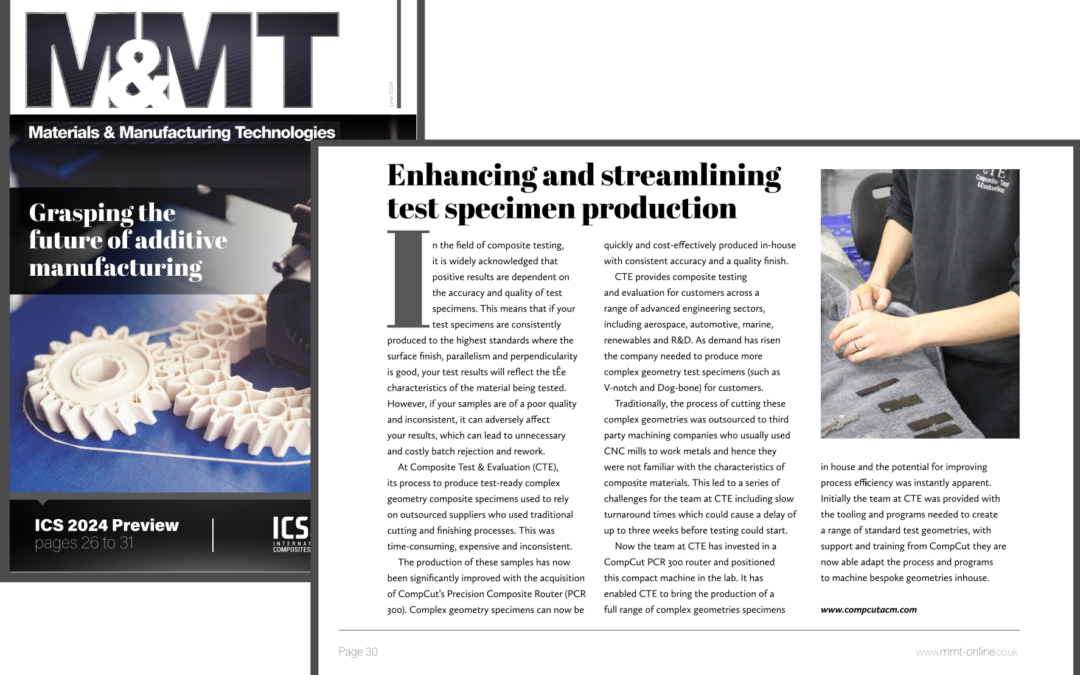In the field of composite testing, it is widely acknowledged that positive results are dependent on the accuracy and quality of test specimens. This means that if your test specimens are consistently produced to the highest standards where the surface finish, parallelism and perpendicularity is good, your test results will reflect the true characteristics of the material being tested. However, if your samples are of a poor quality and inconsistent, it can adversely affect your results, which can lead to unnecessary and costly batch rejection and rework.
At Composite Test & Evaluation (CTE), its process to produce test-ready complex geometry composite specimens used to rely on outsourced suppliers who used traditional cutting and finishing processes. This was time-consuming, expensive and inconsistent.
The production of these samples has now been significantly improved with the acquisition of Compcut’s Precision Composite Router (PCR 300). Complex geometry specimens can now be quickly and cost-effectively produced in-house with consistent accuracy and a quality finish.
CTE provides composite testing and evaluation for customers across a range of advanced engineering sectors, including aerospace, automotive, marine, renewables and R&D. As demand has risen the company needed to produce more complex geometry test specimens (such as V-notch and Dog-bone) for customers.
Traditionally, the process of cutting these complex geometries was outsourced to third party machining companies who usually used CNC mills to work metals and hence they were not familiar with the characteristics of composite materials. This led to a series of challenges for the team at CTE including slow turnaround times which could cause a delay of up to three weeks before testing could start.
Now the team at CTE has invested in a Compcut PCR 300 router and positioned this compact machine in the lab. It has enabled CTE to bring the production of a full range of complex geometries specimens in house and the potential for improving process efficiency was instantly apparent. Initially the team at CTE was provided with the tooling and programs needed to create a range of standard test geometries, with support and training from Compcut they are now able adapt the process and programs to machine bespoke geometries inhouse.
To read the article on line :
M&MT June 2024 Digital Edition
//v.calameo.com/?bkcode=00443197175dccd7398d9

